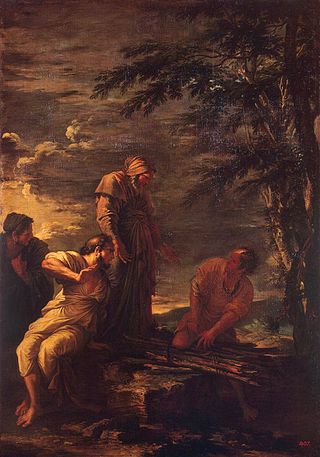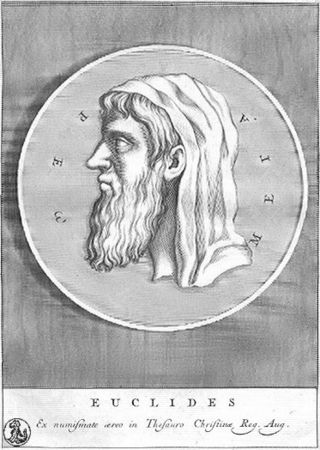Related Research Articles
Eubulides of Miletus was a philosopher of the Megarian school who is famous for his paradoxes.

Protagoras was a pre-Socratic Greek philosopher and rhetorical theorist. He is numbered as one of the sophists by Plato. In his dialogue Protagoras, Plato credits him with inventing the role of the professional sophist.

Aulus Gellius was a Roman author and grammarian, who was probably born and certainly brought up in Rome. He was educated in Athens, after which he returned to Rome. He is famous for his Attic Nights, a commonplace book, or compilation of notes on grammar, philosophy, history, antiquarianism, and other subjects, preserving fragments of the works of many authors who might otherwise be unknown today.
Favorinus was a Roman sophist and skeptic philosopher who flourished during the reign of Hadrian and the Second Sophistic.

Androcles is the main character of a common folk tale about a man befriending a lion.

Euclid of Megara was a Greek Socratic philosopher who founded the Megarian school of philosophy. He was a pupil of Socrates in the late 5th century BC, and was present at his death. He held the supreme good to be one, eternal and unchangeable, and denied the existence of anything contrary to the good. Editors and translators in the Middle Ages often confused him with Euclid of Alexandria when discussing the latter's Elements.
Peregrinus Proteus was a Greek Cynic philosopher, from Parium in Mysia. Leaving home at a young age, he first lived with the Christians in Palestine. After being expelled from that community he adopted the life of a Cynic philosopher and eventually settled in Greece. Peregrinus is most remembered for his suicide after giving his own funeral oration, cremating himself on a funeral pyre at the Olympic Games in 165. By 180 AD, a statue of Peregrinus had been erected in his home city of Parium; it was reputed to have oracular powers.
Critolaus of Phaselis was a Greek philosopher of the Peripatetic school. He was one of three philosophers sent to Rome in 155 BC, where their doctrines fascinated the citizens, but frightened the more conservative statesmen. None of his writings survive. He was interested in rhetoric and ethics, and considered pleasure to be an evil. He maintained the Aristotelian doctrine of the eternity of the world, and of the human race in general, directing his arguments against the Stoics.
Persaeus of Citium, son of Demetrius, was a Greek Stoic philosopher, and a friend and favourite student of Zeno of Citium.
Posidippus of Cassandreia was a Greek comic poet of the New Comedy.
Aulus Hostilius Mancinus was consul of the Roman Republic, together with Aulus Atilius Serranus, in 170 BC. He had been an urban praetor in 180 BC. When he was consul he was given the command of the Third Macedonian War for that year.
Gaius Sempronius Tuditanus was a politician and historian of the Roman Republic. He was consul in 129 BC.

Aulus Postumius Tubertus was a Roman military leader in the wars with the Aequi and Volsci during the fifth century BC. He served as Magister Equitum under the dictator Mamercus Aemilius Mamercinus in 434 BC, and was dictator himself in 431.
Pro Quinctio was a defence speech delivered by Marcus Tullius Cicero in 81 BC, on behalf of Publius Quinctius. It is noteworthy as the earliest of Cicero's published speeches to survive.

Gnaeus Gellius was a Roman historian. Very little is known about his life and work, which has only survived in scattered fragments. He continued the historical tradition set by Fabius Pictor of writing a year-by-year history of Rome from mythological times to his day. However, with about a hundred books, Gellius' Annales were massively more developed than the other Roman annalists, and was only surpassed by Livy's gigantic History of Rome.
Cephisia or Kephisia was a deme of ancient Attica, of the phyle of Erechtheis, sending six or eight delegates to the Athenian Boule.
Titus Annianus was a poet of ancient Rome, who lived in the time of the emperors Trajan and Hadrian, and wrote erotic or light verse, possibly in the Faliscan language.
The gens Gellia was a plebeian family at ancient Rome, where they settled after the Second Punic War. The first of the Gellii to obtain the consulship was Lucius Gellius Poplicola, in 72 BC, but the most famous member of this gens is probably the grammarian Aulus Gellius, who flourished during the second century AD.
The gens Lavinia was a minor family at ancient Rome.
Titius Aristo was a distinguished jurist of ancient Rome, who lived around the 1st and 2nd centuries CE, under the emperor Trajan, and was a friend of Pliny the Younger. He is spoken of by Pliny in terms of the highest praise, as not only an excellent man and profound scholar, but a lawyer thoroughly acquainted with private and public law, and perfectly skilled in the practice of his profession.
References
- ↑ Aulus Gellius, Attic Nights, book 5, chapter 10.
- ↑ Mark, Joshua J. (January 18, 2012). "Protagoras's Paradox". World History Encyclopedia.